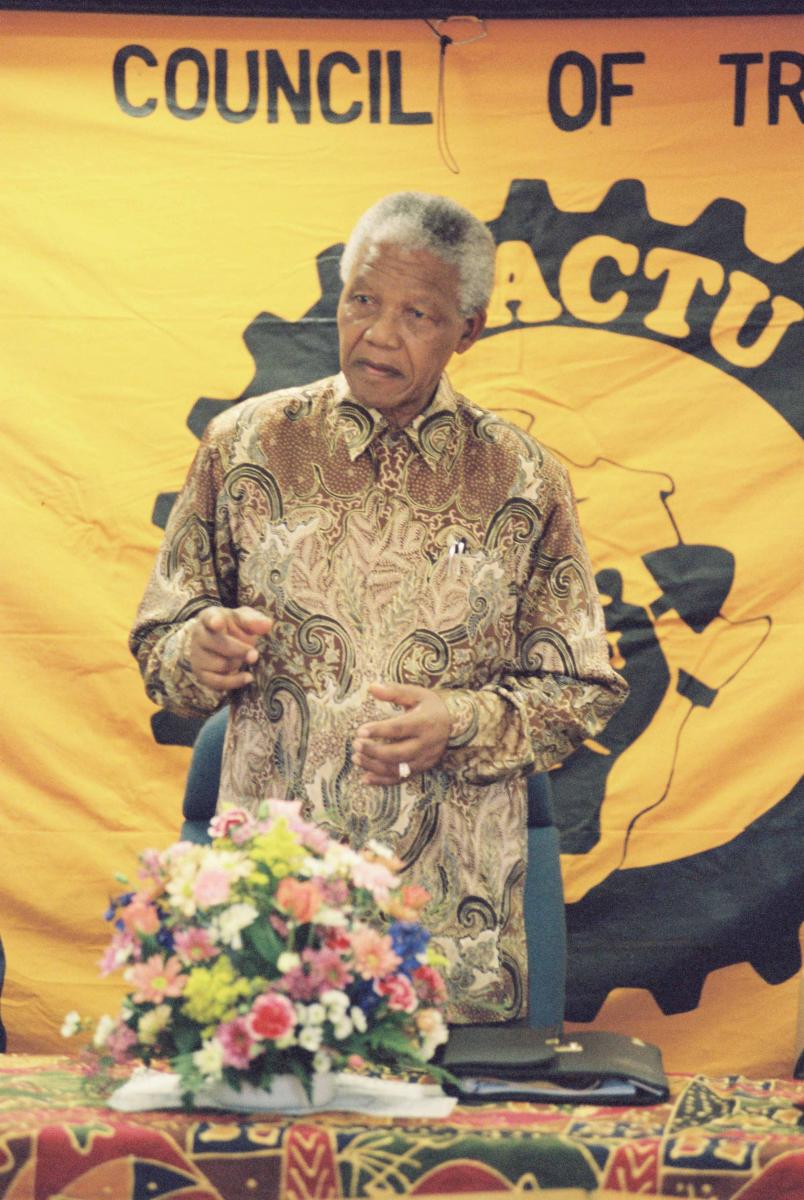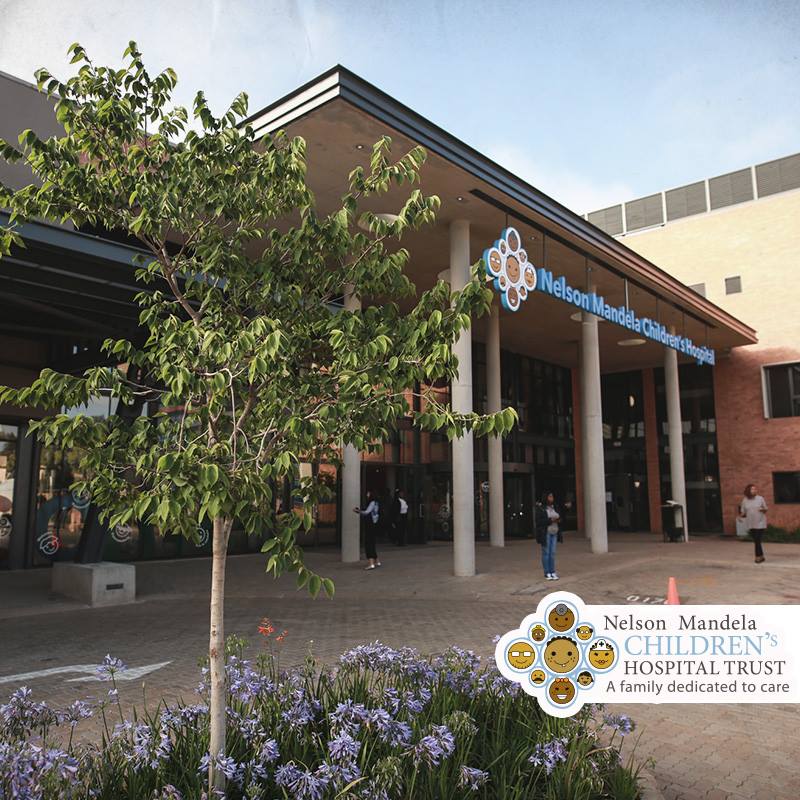Mandela’s living legacy for children continues
Mandela’s living legacy for children continues lebangThere’s a reason why South Africa’s first democratically elected President Nelson Mandela was affectionately referred to as the “father of the nation”.
 He was called such not only for his fatherly role he played during his leadership of South Africa, but also for the love and support he has showed to children around the world.
He was called such not only for his fatherly role he played during his leadership of South Africa, but also for the love and support he has showed to children around the world.
Mandela’s love for children and the love that children showed to him is well documented. Be it sharing his birthday cake with them, or raising funds for programmes creating beneficial environments for the welfare of children, Mandela was at the forefront of these initiatives.
It was this love for children that pressed Madiba to want to leave a living legacy for them, even when he’s gone. The Nelson Mandela Children’s Hospital (NMCH), which opened its doors for its first patients in 2017, is a testimony of his love and care for children.
NMCH a brainchild of the Nelson Mandela Trust
The NMCH is the brainchild of the Nelson Mandela Children’s Hospital Trust, initiated by the Nelson Mandela Children’s Fund in 2009. The trust was established and tasked with raising R1 billion to build and equip a children’s hospital to meet the tertiary paediatric healthcare needs in Southern Africa.
Thanks to donors from around the world, the construction of the hospital started in April 2014, and on the December 2016 saw the launch of the NMCH.
The hospital is one of two specialised children’s hospitals in the country. Africa only has four specialised children’s hospitals, compared to 23 in Canada, 19 in Australia, 20 in Germany and 157 in the United States.
The hospital is next to Wits University’s Medical School and is close to other medical facilities in Parktown, Johannesburg. The state-of-the-art hospital officially opened its doors in June 2017, when it took its first referred patients.
As the country commemorates the Nelson Mandela Centenary this year, Vuk’uzenzele recently sat down with hospital CEO Dr Mandisa Maholwana to check on activities within the hospital, as well as the impact on the lives of children.
Dr Maholwana joined the hospital on 1 July 2017, following an appointment of executive leadership in the first quarter of the year.
She said that the role is to provide super specialised services for the children of the country and the region.
“We are looking at specialised procedures like paediatric spinal surgery, paediatric neurosurgery, paediatric cardiology, which looks at, for example, congenital heart conditions for children from before they are born up to when they can be managed, whether they will need surgical intervention in terms of an operation or closing whatever holes are in the baby's heart.
“Our Cardiology Department works very closely with the Paediatric Cardiothoracic Surgery Department to be able to manage those patients a little bit more effective.ly. We want to change the landscape and the outcomes for children to make sure that where we can intervene quite early on in the disease process, or if they need surgical intervention, those children can be operated on,” she said.
 Maholwana said the hospital would be opened in phases before it becomes fully operational. Phase one, which was implemented last year included the opening of Anaesthesiology Department to administer anaesthesia, alongside with the radiology unit, pharmacy and a day ward.
Maholwana said the hospital would be opened in phases before it becomes fully operational. Phase one, which was implemented last year included the opening of Anaesthesiology Department to administer anaesthesia, alongside with the radiology unit, pharmacy and a day ward.
Phase one
The first phase was easy to implement, and within a month after the hospital’s opening, it started accepting referral patients for radiology services and performing Magnetic Resonance Imaging (MRI) scans and CAT (CT) scans.
Since the referral of patients to NMCH started, Dr Maholwana noted that the backlog at hospitals like Charlotte Maxeke Johannesburg Academic has been cleared completely.
The two-year waiting list and times for MIR and CT scan appointments has also been reduced significantly Chris Hani Baragwanath Academic Hospital, Rahima Moosa Mother and Child Hospital and Steve Biko Academic Hospital.
“We’ve seen a lot of children with cancer and tumours and that has been the greatest impact of the hospital, even oncology patients are being diagnosed and treated immediately.”
Phase two
During the second phase, the hospital provided nephrology services, which includes dialysis for children, cardiology services which looks at specialised diagnostic areas like electrocardiogram (ECG) procedures, echocardiography procedure, and cardiopulmonary exercise testing procedure, which is the first in the country for children.
This phase also included the opening of a Paediatric Intensive Care Unit (ICU) complex, looking at paediatric ICU and neonatal ICU. The ICU complex, which was officially opened by the Gauteng Health Department on 28 February 2018 is now fully operational.
Phase three
The next phase for the hospital will be the opening of surgical services to be followed by the last phase, the opening of paediatric oncology unit.
In preparing for surgical services, Dr Maholwana said the hospital has started the recruitment and commissioning for neurosurgical procedures, orthopaedic, general paediatric surgery services and cardiothoracic surgery procedures.
“We are taking a staggered approach so that once we set up one service, we go to the next service. We recruit, we talk to all the academic heads so that as a team, we decide how we are going to offer the service and how we rotate people to the hospital,” she explained.
Currently, the hospital has 200 beds and over 180 staff members, including nurses, doctors and administration.
When it is fully operational, it is envisaged that it will employ approximately 150 doctors and 451 paediatric nursing professionals, as well as allied services.
The hospital is currently working with a number of international children’s hospitals like Toronto's Sick Kids Hospital in Canada and Great Ormond Street Hospital in London, where they share experiences and best practices.
Dr Maholwana said the hospital is determined to continue Nelson Mandela’s legacy by working hard and ensureing children who come to NMCH feel his spirit, live like children, and are treated like children.